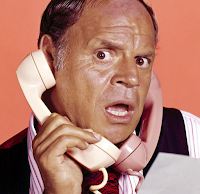** DC Comics, perhaps the comic company that Cooke was most associated with, released a statement, with this description of Cooke by co-publisher Dan Didio:
"Darwyn Cooke lived life like a character from a Micky Spillane novel, a throwback to a bygone era that was, more than occasionally, reflected in his work," said DC Comics Co-Publisher Dan DiDio. "He was both compassionate and combative, approaching everything he did with a tenaciousness and temerity that is now unheard of in a world afraid to offend. The simplistic brilliance of his art and the natural flow of his storytelling not only elevated but enhanced all projects he touched and his passion and love of comics was reflected in every panel of every page. Working with Darwyn was not without its challenges. There were times we'd spend hours arguing over story then go months without talking, but we always found our way back, drawn together by the common bond and friendship comics creates. This is an industry-wide loss that I feel personally, but the sadness is mitigated in the knowing that the beauty and grace of his art will forever stand the test of time and be a monument to all that is great about comics."
** At the New York Times, their comic writer George Gene Gustines writes the obituary about Cooke.
** Here are three pretty great interviews that Darwyn Cooke gave in a relatively short period.
- With Markisan Naso from The Comics Journal #285 (October 2007.)
- With Tucker Stone (2008.)
- With Tom Spurgeon (2009.)
** At The Comics Journal, Markisan Naso writes about Cooke, and even quotes Cooke addressing the controversy over his involvement in the Before Watchmen project at DC.
Before Watchmen elicited a largely negative reaction from comics fans and creators who perceived the initiative as a blatant cash grab by DC that violated the moral rights of Alan Moore and Dave Gibbons. It was a backlash Darwyn accepted. “I understand that kind of an emotional response to something that meaningful. I think it’s all fair game. I’ve read some pretty nasty things said about myself, for example. I can deal with that,” he told Rolling Stone. “I made a very deliberate and very conscious decision the day that I got involved with this business to honor the work that had come before me, and to respect the work of the men that had come before me. I can’t give the Siegel and Shusters what they deserve, and I certainly can’t give Alan Moore what he deserves, or what he thinks he should get out of this. That’s all beyond my power. But what I can do is have respect for what he’s done, and try to do my best to live up to that.”
I ought to be posting an image from Darwyn Cooke’s Parker adaptations here, because that is the work of his I appreciate the most as total storytelling. The first of the line, 2009’s The Hunter, is particularly interesting. Under Cooke — who died this past Saturday, only 53 — Donald Westlake’s portrayal of entrenched criminal business becomes a cool fantasy magazine of perfect design references: absolute aspiration made manifest, with not only every car and sofa a potential apotheosis of the mid-century sleek, but people themselves drawn as veritable avatars of good living, as if any one of them might spin around and freeze, a salable period consumer item gleaming in their hands. By god you will want to buy it. Every criminal is in business in The Hunter, because crime *is* business, and into the spread marches Parker, the superior professional. He has arrived to settle accounts, and when these corporate men are shot they die demurely, their bodies unwilling to surrender the disruption of gore. Even the shadows are tidy in this catalog world.
** For Printmag, Michael Dooley collects a number of memories and tributes to Cooke, including this one by recent collaborator Gilbert Hernandez.
When [DC Comics editor] Shelly Bond was at Vertigo she called to tell me Darwyn wanted to collaborate with me. I was happy to do it because I knew he would surely do a bang-up job on it. Well, he went beyond my expectations and completed the book [Twilight Children] beautifully.
I met him at New York Comic Con 2015 and we became fast friends. When I headed out for the airport to go home, he gave me a loving bear hug that suggested maybe we’ll see each other again. Months later when I found out just how ill he was, that hug has so much more meaning now. What a guy. God bless.** At Newsarama this week, I was able to write about Cooke and Hernandez's Twilight Children.
It’s these character actions, the way that they love, argue, fight and care for each other, that provides a strong platform for Cooke’s work. It’s fascinating to read this book, because Cooke very well could have been a possibly long-lost Hernandez brother with this kind of artwork. The way Cooke’s characters are arranged in a panel feels akin to Gilbert’s “Palomar” stories, while in other ways, Cooke’s art evokes Gilbert’s brother Jaime Hernandez (see his Love Bunglers book) with simple yet emotive lines.
** Tom Spurgeon at The Comics Reporter has collected even more links to tributes and memories of Cooke.











